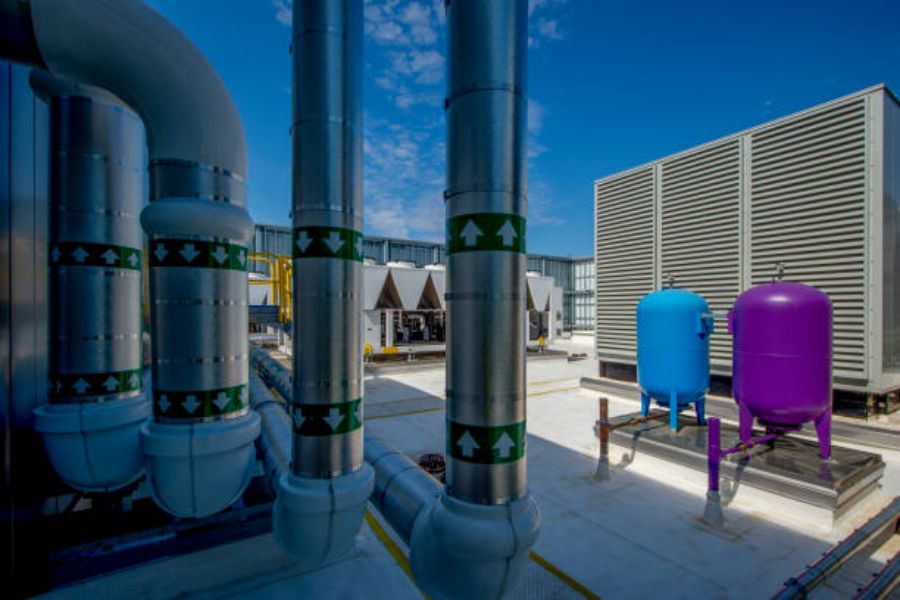Water Chillers for Sale: A Comprehensive Guide to Choosing the Right Option
When it comes to industrial cooling systems, water chillers play a crucial role in maintaining optimal temperatures for various processes. Whether you are looking to cool down equipment, control humidity, or improve product quality, finding the right water chiller for sale is essential. With numerous options available on the market, it can be overwhelming to make the right choice. In this article, we will provide you with a comprehensive guide to help you choose the perfect water chiller for your specific needs.
1. Understanding Water Chillers
Before diving into the details, let's start by understanding what water chillers are. In simple terms, water chillers are refrigeration systems designed to cool water to desired temperatures. They are commonly used in industrial settings, commercial facilities, and even residential applications. Water chillers work by removing heat from the water and transferring it to the surrounding environment using a refrigeration cycle.
2. Types of Water Chillers
Water chillers come in various types, each offering unique advantages and applications. Here are some of the most common types:
A. Air-Cooled Water Chillers
As the name suggests, air-cooled water chillers use ambient air to dissipate heat. These chillers are typically more affordable and easier to install since they do not require a separate cooling tower. However, they may consume more energy and produce more noise compared to other types.
B. Water-Cooled Water Chillers
Water-cooled water chillers, on the other hand, use a separate cooling tower to dissipate heat. These chillers are ideal for applications where there are space constraints or noise is a concern. While they may require additional plumbing and incur higher installation costs, water-cooled chillers are generally more energy-efficient.
C. Evaporative-Cooled Water Chillers
Evaporative-cooled water chillers combine the advantages of air-cooled and water-cooled systems. They use evaporation to cool the condenser coils, resulting in higher energy efficiency and lower operating costs. However, these chillers require a constant water supply and may not be suitable for areas with water scarcity.
3. Factors to Consider Before Buying
Now that you have a basic understanding of the different types of water chillers, let's explore the key factors you should consider before making a purchase:
A. Cooling Capacity
The cooling capacity of a water chiller is one of the most important factors to consider. It determines how much heat the chiller can remove from the water in a given time. To determine the required cooling capacity, consider factors such as the volume of water to be cooled, the desired temperature drop, and the heat load from the surrounding environment.
B. Energy Efficiency
Energy efficiency is another crucial aspect when choosing a water chiller. Look for chillers with high energy efficiency ratings, such as those certified by ENERGY STAR®. These chillers can help you save on energy costs and reduce your environmental footprint.
C. Space and Installation Requirements
Consider the available space and installation requirements for the water chiller. Air-cooled chillers are typically more compact and easier to install, while water-cooled chillers require additional space for the cooling tower. Evaluate your facility's layout and choose a chiller that fits your space limitations.
D. Maintenance and Serviceability
Regular maintenance is essential to ensure the longevity and optimal performance of your water chiller. Look for chillers with easy access to components and straightforward maintenance requirements. Additionally, consider the availability of service technicians and spare parts for the specific chiller model.
E. Noise Level
If noise is a concern in your facility, pay attention to the noise level produced by the water chiller. Air-cooled chillers tend to be louder compared to water-cooled or evaporative-cooled options. Ensure that the noise level of the chiller is within acceptable limits for your specific application.
4. Choosing the Right Size
When it comes to water chillers, size matters. Choosing the right size chiller is crucial to ensure optimal performance and efficiency. An undersized chiller may struggle to meet your cooling requirements, leading to decreased efficiency and potential damage to the equipment. On the other hand, an oversized chiller may consume more energy than necessary.
To determine the right size, consider factors such as the heat load of the application, the desired temperature drop, and the flow rate of the water. Consulting with a knowledgeable professional or using online sizing calculators can help you accurately determine the required chiller size.
5. Budget Considerations
Of course, budget is an important factor when buying a water chiller. While it can be tempting to opt for the cheapest option available, it's crucial to balance cost with quality and long-term savings. Consider the initial purchase cost, installation expenses, energy efficiency, and maintenance requirements to determine the overall cost-effectiveness of the chiller.
6. Where to Find Water Chillers for Sale
Now that you know what to look for in a water chiller, you might be wondering where to find them. Here are some common sources to explore:
A. Manufacturer Websites
Many water chiller manufacturers have websites where you can browse their product offerings and specifications. This allows you to directly contact the manufacturer for more information or request a quote.
B. Industrial Equipment Suppliers
Industrial equipment suppliers often carry a range of water chillers for sale. They can provide guidance and assistance in choosing the right chiller for your specific needs. Reach out to local suppliers or search online directories to find reputable suppliers in your area.
C. Online Marketplaces
Online marketplaces such as Amazon, eBay, and Alibaba also offer a wide selection of water chillers from various sellers. Make sure to read customer reviews, compare prices, and verify the seller's reputation before making a purchase.
7. Conclusion
Investing in a high-quality water chiller is essential for maintaining optimal temperatures and improving efficiency in industrial processes. By considering factors such as cooling capacity, energy efficiency, space requirements, and budget, you can make an informed decision when choosing a water chiller for sale. Remember to prioritize your specific needs and consult with experts to ensure the chiller meets your requirements.
